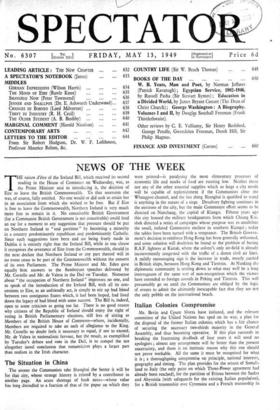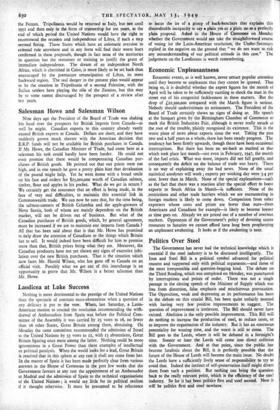Italian Colonies Compromise
Mr. Bevin and Count Sforza have initiated, and the relevant committee of the United Nations has sped on its way, a plan for the disposal of the former Italian colonies which has a fair chance of securing the necessary two-thirds majority in the General Assembly, and thus becoming operative. If this plan succeeds in breaking the frustrating deadlock of four years it will need no apologists ; almost any arrangement will be better than the present uncertainty, and there is no intrinsic reason why this one should not prove workable. All the same it must be recognised for what it is ; a thoroughgoing compromise on principle, national interests, geography and timing. The plan provides for the return of Somali- land to Italy (the only point on which Three-Power agreement had already been reached), for the partition of Eritrea between the Sudan and Abyssinia (with safeguards for the existing Italian population), for a British trusteeship over Cyrenaica and a French trusteeship in
the Fezzan. Tripolitania would be returned to Italy, but not until 1951 and then only in the form of trusteeship for ten years, at the end of which period the United Nations would have the right to recommend the reunion and independence of Libya, if such a step seemed fitting. Those States which have an axiomatic aversion to colonial rule anywhere and in any form will find their worst fears confirmed in these proposals, though in fact none of the territories in question has the resources or training to justify the grant of immediate independence. The dream of an independent North Africa, which is cherished in Cairo, is more likely to be set back than encouraged by the premature emancipation of Libya, its most backward region. The real danger in the present plan would appear to be the creation in Tripolitania of a second Palestine, with the Italian settlers here playing the role of the Zionists, but this may be to some extent discouraged by the prospect of a review after ten years.







































